| کد مقاله | کد نشریه | سال انتشار | مقاله انگلیسی | نسخه تمام متن |
|---|---|---|---|---|
| 3158482 | 1198237 | 2009 | 10 صفحه PDF | دانلود رایگان |

PurposeMucoepidermoid carcinoma (MEC) is the most frequently detected primary malignancy of the salivary gland and is characterized by a marked variation in prognosis. In the present study, we investigated the prognostic significance of p27Kip1, Ki-67, and CRTC1 (also called MECT1, TORC1, and WAMTP1)-MAML2 fusion in MEC.Materials and MethodsMEC cases (n = 101) were examined for p27Kip1 and Ki-67 expression using immunohistochemistry and for CRTC1-MAML2 fusion transcript using reverse transcriptase-polymerase chain reaction.Resultsp27Kip1, Ki-67, and the CRTC1-MAML2 fusion transcript were expressed in 71, 31, and 34 of the 101 cases, respectively. p27Kip1 and CRTC1-MAML2 fusion were associated with favorable clinicopathologic tumor features and Ki-67 with aggressive clinicopathologic features. Multivariate survival analyses were performed that included the following 10 clinicopathologic factors: age, gender, tumor site, tumor size, nodal metastasis, clinical stage, histologic grade, p27 expression, Ki-67 expression, and CRTC1-MAML2 fusion. For disease-free survival, only p27Kip1 expression was significant as an independent prognostic factor. For overall survival, p27Kip1 expression, CRTC1-MAML2 fusion, and tumor size were significant. In each analysis, p27Kip1 and CRTC1-MAML2 fusion were independent of the clinical stage. Ki-67 expression was not selected in either multivariate analysis.Conclusionsp27Kip1 and CRTC1-MAML2 fusion were associated with favorable clinicopathologic tumor features, and both were useful in predicting the overall survival of patients with MEC. For disease-free survival, p27Kip1 might be the most useful prognostic factor. In contrast, Ki-67 might not be a very powerful prognostic indicator for either survival point.
Journal: Journal of Oral and Maxillofacial Surgery - Volume 67, Issue 7, July 2009, Pages 1432–1441